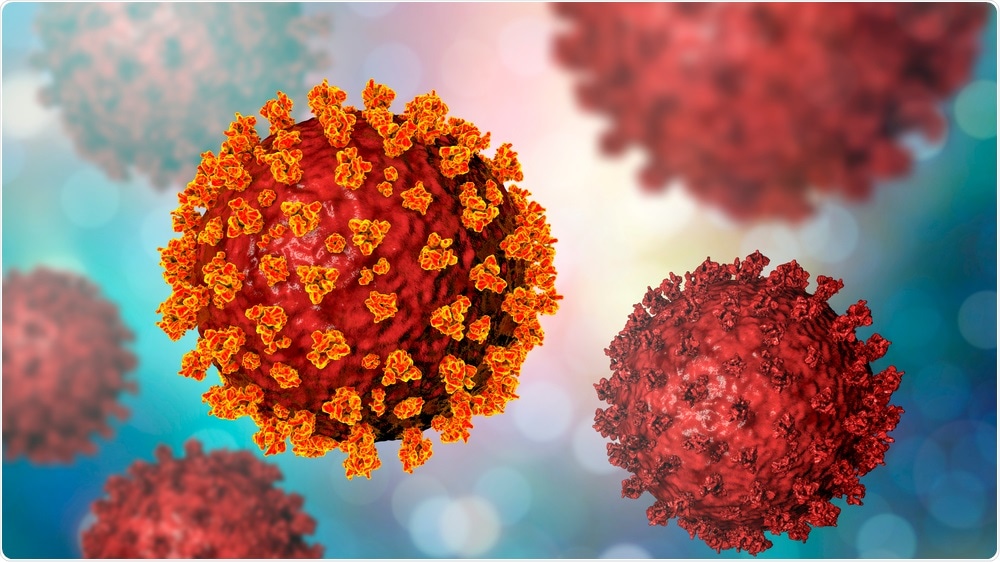Scientists from Yonsei University in South Korea have discovered that some commensal bacteria residing in the human gut release compounds that suppress the SARS-CoV-2 virus.

SARS-CoV-2 Virus. Image Credit: Kateryna Kon/Shutterstock.com
The findings will be presented at the World Microbe Forum, an online conference of the American Society for Microbiology (ASM), the Federation of European Microbiological Societies (FEMS), and several other societies. The meeting will take place from June 20th to 24th, 2021.
Prior clinical studies have revealed that some individuals with moderate-to-severe COVID-19 experienced gastrointestinal symptoms, whereas others displayed signs of infection only in their lungs.
We wondered whether gut resident bacteria could protect the intestine from invasion of the virus.”
Mohammed Ali, PhD Student in Medicine, Yonsei University
To test this theory, the researchers screened dominant microbes found in the human gut for signs against the SARS-CoV-2 virus. Ali informed that their analysis showed that Bifidobacteria, which have already been demonstrated to inhibit other bacteria, like H. pylori, and also shown to be active against irritable bowel syndrome, also had this activity.
The researchers also utilized machine learning to look for possible disease-fighting compounds in databases comprising microbially generated molecules and found that some of these compounds may be effective against the SARS-CoV-2 virus.
To train our model we leveraged previous coronavirus datasets in which several compounds were tested against targets from coronaviruses. This approach seems to be significant as those targets share features in common with SARS-CoV-2.”
Mohammed Ali, PhD Student in Medicine, Yonsei University
Ali underscored the ecological aspect of his approach in this study and pointed out that several existing cancer treatments and antibiotics are compounds that are used by bacteria to compete with one another inside the gastrointestinal system, and that these were first purified from microbial secretions.
Finding microbes that secrete anti-coronavirus molecules will be a promising method to develop natural or engineered probiotics to expand our therapeutics prevention techniques, to provide a more sustainable way to combat the viral infection.”
Mohammed Ali, PhD Student in Medicine, Yonsei University